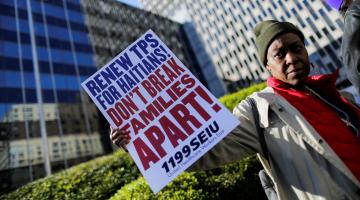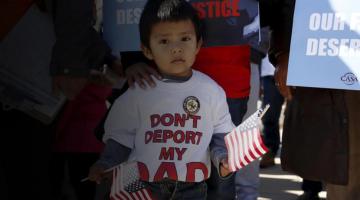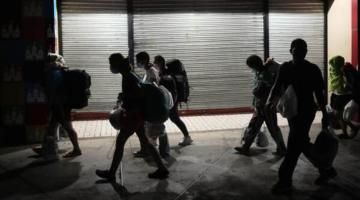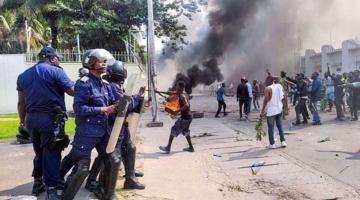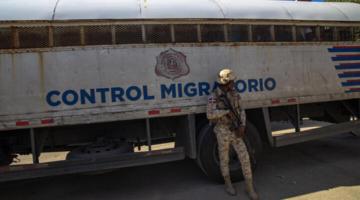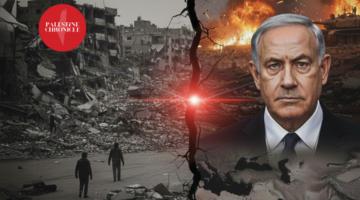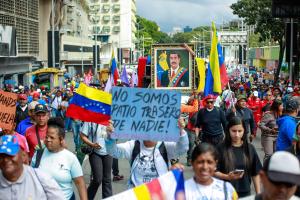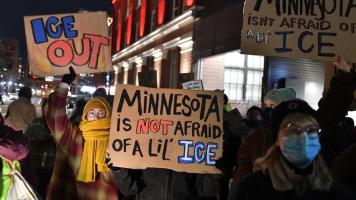The United States' role in Central Africa has resulted in regional war and mass casualties.
Originally published in NewsGhana.
Geostrategic Analysis
United States President Donald Trump during a White House meeting on April 18 with Italian Prime Minister Giorgia Meloni made several comments about the detentions and deportations of migrants to a maximum-security prison in El Salvador.
During his comments about what he described as “illegal immigration”, he claimed that people were entering the U.S. from various geopolitical regions of the world.
He then went on to mention Congo as a source of migration into the U.S. noting that he does not know what that county is even though it is a problem for his administration. However, the reality is that the Secretary of State in the Trump administration, Marco Rubio, has met with the foreign ministers of both the Democratic Republic of Congo (DRC) and its eastern neighbor of Rwanda in a purported effort to end the war now ravaging the provinces of North and South Kivu.
War has erupted again between the M23 rebels and the DRC national army over control of the eastern region of the resource-rich state. The rebels backed by the Rwandan government of President Paul Kagame have taken control of the major cities in North and South Kivu, Goma and Bukavu respectively. Reports indicate that approximately 3,000 people have been killed since the beginning of the year.
The Southern African Development Community (SADC) has announced the withdrawal of its peacekeeping troops from Eastern DRC. A number of South African and Malawian troops were killed in the fighting prompting the decision to pull troops out of the country. Ironically enough, despite the membership of the DRC within SADC, it is the Rwandan military forces which are escorting the peacekeeping troops out of the country.
In his desperation to maintain control of the government based in Kinshasa, the DRC President Felix Tshisekedi, is endangering the future of his country and the entire region of the African Great Lakes. The history of U.S. involvement in post-colonial events in the DRC has resulted in persistent instability, underdevelopment and internecine conflict.
In the current period the same U.S. administration which has denied knowing what and where the DRC is, has no good intentions for the country or the entire Great Lakes region. The inability of the African Union (AU) and other regional organizations to end the war has opened the way for further imperialist intervention and enrichment.
Intervention Through “Diplomacy”
Secretary of State Rubio in a recent meeting with the foreign ministers of the DRC and Rwanda suggested that the agreement to supply critical minerals in exchange for Washington’s security guarantees, was in line with Trump’s plans to foster prosperity throughout the globe. Despite these claims, the international financial markets have experienced turmoil since January 20. Things have worsened even further with the announcement of a “liberation day” formula on April 2 where tariffs were placed on countries throughout the world.
Trump predicted that governments would be flocking to Washington to make deals with the new administration. This has not happened while the main strategic adversary of the U.S., the People’s Republic of China, is repeatedly denying that any serious discussions over trade policy has occurred with Washington.
In the strategic African Great Lakes region where important resources exist, the Trump administration’s foreign policy will only foster tensions between various states in their quest for greater profits. With the failure of the United Nations and SADC peacekeeping forces to bring stability in the Eastern DRC, the U.S. intervention can only create more hostility towards Washington as its diplomatic incapacity to negotiate sustainable agreements becomes more obvious.
In a report published on May 5 by the Associated Press related to the State Department’s efforts in the African Great Lakes says that:
“Congo is the world’s largest producer of cobalt, a mineral used to make lithium-ion batteries for electric vehicles and smartphones. The country also has substantial gold, diamond and copper reserves. Monday’s draft peace proposal comes after U.S. Secretary of State Marco Rubio last month oversaw the signing by Congo and Rwanda of a pledge to work toward a peace deal. Rwanda’s foreign minister, Olivier J.P. Nduhungirehe, told the Rwanda Broadcasting Agency on Monday that he would meet Congo’s foreign minister in the third week of May to negotiate a final peace agreement. He said he hoped the presidents of Rwanda and Congo would sign the agreement by mid-June at the White House in the presence of Trump and heads of state from the region.”
Yet the prospects for the realization of a genuine peace agreement which is negotiated by the leading imperialist state in the world at this stage are quite remote. This would not be the first time that Washington has intervened in the DRC ostensibly to stabilize the country and the region.
During the 1960s, in order to stifle the potential for the left-leaning government of Prime Minister Patrice Lumumba in the former Belgian Congo, who sought to realize sustainable development and unity, was undermined by the then President Dwight D. Eisenhower administration. Lumumba and his Congolese National Movement (MNC) was overthrown leading to the kidnapping and execution of Lumumba and many of his leading comrades.
After the liquidation of the Lumumba administration, the regime of Mobutu Sese Seko was propped-up for another three-and-a-half decades with the assistance of the Central Intelligence Agency (CIA). So therefore, where is the precedent for U.S. imperialist interventions which worked towards the benefit of the African people?
Between 1998-2003, a regional war erupted which was instigated by the State Department under Secretary of State Madeleine Albright during the administration of former President Bill Clinton. The Rwandan-Ugandan invasion of the DRC was designed to maintain firm imperialist control over the region.
Although the Washington-backed intervention from 1998-2003 failed, millions were displaced while an underdetermined number were killed. Instability continued leading to the rise of other rebel groupings including in recent years the M23 organization. The vast natural resource wealth of the DRC has yet to benefit the majority of the workers, farmers and youth of the country.
Fighting Intensifies in the Eastern DRC
The State Department project in the DRC has not resulted in a lessening of the fighting in the eastern region. Reports indicate that the Rwandan-backed M23 rebels are continuing their offensive and seizing control of other towns and villages.
Several months ago, the M23 rebels had supposedly declared a ceasefire after taking control of the two largest cities in North and South Kivu. Nonetheless, instability and violence continued unabated.
Critical Threats website which monitors events throughout the DRC said of the current situation:
“M23 captured several villages on Lake Edward in North Kivu. M23 militants reportedly crossed Lake Edward on boat and came by land from two villages on the southern edge of Lake Edward and attacked Congolese army (FARDC) positions in Lunyasenge and another village on April 28. M23 captured Lunyasenge village on May 2 after another clash with FARDC and pro-government Wazalendo militias that inflicted heavy casualties on both sides. Lunyasenge is 30 miles west of the Lake Edward coastline and roughly 20 miles south of Lubero town. The FARDC denounced the attack as an ‘intentional and flagrant violation’ of the Qatari-brokered preliminary truce and threatened to retaliate on May 2.”
These developments do not bode well for the future of reclaiming some semblance of stability in the Eastern DRC. The Trump administration in its first iteration described states within the African continent in very disparaging terms.
A key element in the Republican Party’s political base is centered within its domestic anti-immigrant policies. Trump has pledged to deport millions of people from the U.S. Since coming to office for the second time, the administration has deported migrants without due process to a draconian prison in El Salvador. These migrants being targeted by the administration are not just from Mexico, Central America and South America. African and West Asian migrants are also being picked up off the streets for purely racist reasons aimed at lowering the number of people of color in the U.S.
Interestingly, a program to deport migrants from the United Kingdom to Rwanda which failed due to challenges within the British and European Union (EU) courts, is now being suggested for the U.S. In the same Critical Threats report cited above, it emphasized:
“The Rwandan foreign minister confirmed previous reporting that Rwanda is in early-stage talks with the United States over a migrant deal. Rwandan Foreign Minister Olivier Nduhungirehe said on May 4 that Rwanda is in ongoing talks with the United States to accept deported migrants from the United States. Nduhungirehe said that the talks were ‘still in the early stages.’ The Washington Post cited a Rwandan official on April 30 who said the two countries have been discussing the arrangement since late January. The Washington Post cited a former U.S. official who speculated that Rwanda views the deal as an opportunity to reset relations with the United States within the context of a broader peace deal after the United States sanctioned Rwandan and M23 officials in late February.”
Such negotiations around the deportation of migrants from the U.S. must not only be challenged in the U.S. federal courts, it should be denounced by all progressive and freedom-loving people domestically and internationally. There can be no collaboration with racism and neo-fascism.
Abayomi Azikiwe is the Editor of Pan-African News Wire.


